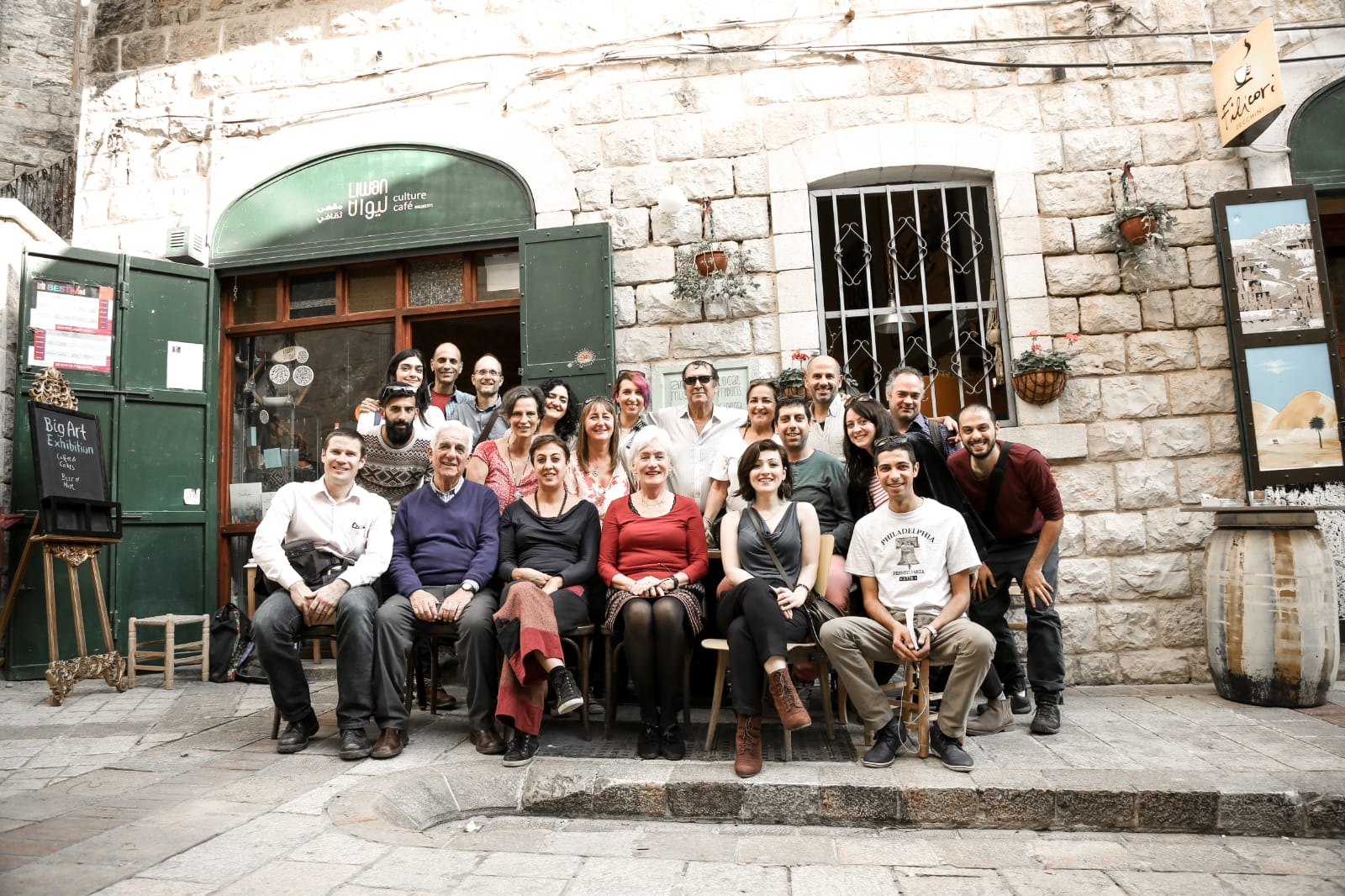
What is the role of culture and literature in times of adversity? This question motivated the Kalimat Literature Festival organized by CBRL’s Kenyon Institute in Jerusalem in partnership with the Educational Bookshop between 3-7 November 2018. The festival featured 14 critically-acclaimed Palestinian and international writers speaking in nightly thematically-organized panels in Jerusalem, Nablus, Ramallah, Bethlehem and Haifa. Four writing workshops were also organized at al-Quds, an-Najah, Birzeit, and Bethlehem universities, aimed at developing creative writing skills, and exposing international writers to local university communities, their existing writing programs, and the challenges they face overall.
Taking its title from the Arabic for “words”, the Kalimat festival aimed to explore how writing in all its forms – poetry, fiction, non-fiction, and journalism – facilitates experiential reflection, the documentation and defense of historical narrative, and helps build community and resilience. These themes were seen as important to explore in light of the multiple restrictions and challenges Palestinians face in their daily lives under occupation, including within the sphere of cultural production. The ability for words to transcend political boundaries and communicate to audiences beyond immediate surroundings, transforms them into basic tools of human expression that can appeal to commonalities in the human condition. By reflecting on these dimensions in focused discussions and workshops, Kalimat organisers aimed to generate and widen existing discourses and practices of writing, shedding light on how it can serve as an exercise in agency, humanism, resistance and creativity.
Kalimat was an overwhelming success with the opening night audience of 150 persons in Jerusalem indicating the high levels of local interest in the festival and its themes – an interest that was maintained throughout the festival in other cities. Local university workshops were also well attended, creating the opportunity for international writers to gain more direct exposure to university communities, and the challenges they face. International authors hailed from a broad spectrum of writing traditions and topical themes, including travel writing, fiction, poetry, investigative journalism, historical scholarship, literary studies, feminist writing, theatre and popular health commentary. Festival organizers believe that this diversity attracted wide audiences and allowed for eclectic discussion of the festival’s explored themes.
Although Kalimat was overshadowed by the Israeli Border Authority’s detention upon arrival, and eventual prevention of entrance to guest-author Susan Abulhawa, scheduled to MC the festival’s opening night, Abulhawa was eventually ‘skyped in’ multiple times throughout the festival to delighted audiences. Abulhawa’s experience, and her literary divulsion of the 32 hours spent in detention, also served to add a tangible and gripping dimension to the festival’s themes.
Kalimat was organised by the Educational Bookshop and CBRL’s Kenyon Institute – with the support of al-Qattan Foundation, and in partnership with the British Council Palestine, Friedrich Ebert Stiftung, Institut Francais Jérusalem Chateaubriand, and the Goethe Institut Ramallah.











